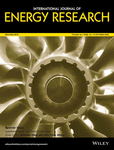Illustration of experimental, machine learning, and characterization methods for study of performance of Li-ion batteries
Funding information: Huazhong University of Science and Technology, Grant/Award Numbers: 2017QYTD04, 2019YGSCXCY037, DMETKF2018019
Summary
The development of fault diagnosis of Li-ion batteries used in electric vehicles is vital. In this perspective, the present work conducted a comprehensive study for the evaluation of coupled and interactive influence of charging ratio, number of cycles, and voltage on the discharge capacity of Li-ion batteries to predict the life of battery. The charging-discharging experimental tests on Li-ion batteries have been performed. The data such as charging ratio, number of cycles, voltage, and discharge capacity of Li-ion batteries are measured. Machine learning approach of neural networks is then applied on the obtained data to compute the effects, normal distribution, parametric analysis, and sensitivity analysis of the input parameters on the capacity of battery. It can be noticed that discharge capacity increased with an increase in full voltage. Further, it has been observed from the sensitivity analysis that the full voltage is most relevant parameters to the capacity of the battery. Additionally, scanning electron microscopy/energy dispersive spectroscopy (SEM/EDS) of the electrodes before and after experiments have been performed, to investigate the elemental dissolution due to the charging/discharging cycles. The findings and analysis from the proposed study shall facilitate experts in making decisions on the remaining life and charging capacity of the battery.




